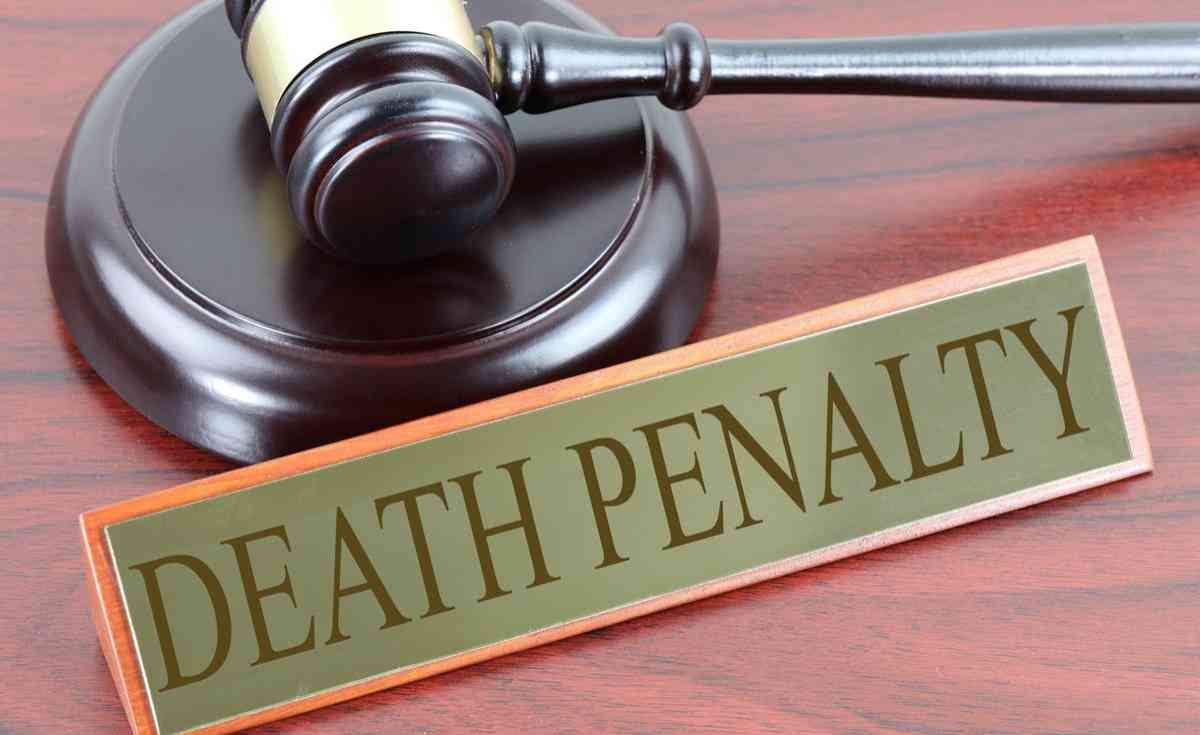
He was not just an ordinary murder suspect. He was an ex-lawman gone rogue.
Jaison Muvevi, a former police officer, made national headlines in January 2023, after he allegedly fatally shot three people — including a police officer — in Wedza, Mashonaland East province. One publication even described him as a “killer from hell.”
His arrest in neighbouring Mozambique, after three days on the run, reignited a national debate that Zimbabweans have been reluctant to put to rest — the death penalty.
For many, the death penalty was designed for “devil incarnates” like Muvevi both as punishment for playing God and as a deterrent sentence to would-be offenders. The court of public opinion — particularly as gleaned on social media — demanded his head on a platter. The deafening chorus was that he should be hanged.
Or should he?
Others felt condemning Muvevi to death would be a blot on society’s collective conscience. The major arguments were mainly along moral and religious lines. A few months later, Muvevi was declared mentally unfit to stand trial by Harare magistrate Dennis Mangosi. Muvevi, who was later charged with more murder cases, was examined by two State doctors and his medical reports were tendered in court. After studying the reports, Mangosi determined that Muvevi was mentally unfit when he committed the offences and should be admitted at a psychiatric hospital.
It would have been perfectly legal to have him hanged, provided he had been found guilty at the conclusion of his trial. The death penalty is a legal punishment under Section 48 of Zimbabwe’s Constitution of 2013. The Constitution abolished mandatory death sentences and limited the death penalty to cases of murder “committed in aggravating circumstances”. It went further to bar death sentences for women and men aged under 21 or over 70 at the time of committing the crime.
Despite the Constitution providing for the death penalty and the courts continuing to impose the death sentence, Zimbabwe has not carried out an execution since 2005 and the President periodically commutes death sentences. This, to some degree, indicates Zimbabwe is moving away from the death penalty.
- I rejected Zanu PF scarf: Burna Boy
- NMB workers take on employer
- Mbavara eyes to resurrect Matavire’s music legacy
- I rejected Zanu PF scarf: Burna Boy
Keep Reading
Crime deterrent?
Common arguments often presume giving murder suspects like Muvevi the death sentence would deter crime, but this perception has been disproved in Zimbabwe over the past 17 years. Veritas notes that “abolishing the death penalty will not lead to a significant increase in serious crime, because the death penalty has not been carried out and crimes which carry the death penalty have not significantly increased.”
Public Opinion
Zimbabwe is generally a conservative country. Research indicates that while the public might be moved by grief and anger to condemn murder suspects to the hangman’s noose, most people are not strongly in favour of the death penalty.
A 2017 survey conducted by MPOI for the Death Penalty Project, found that while 56% of respondents favoured keeping the death penalty, they did not strongly support it. 80% of them said they would accept abolition if the government decided to abolish it.
In a survey of the views of opinion leaders commissioned in 2020 by the Death Penalty Project in partnership with Veritas, 90% of people interviewed, including religious leaders were in favour of the abolition of the death penalty.
Popular opinion leaders, including the President Emmerson Mnangagwa, are overwhelmingly against it. In fact, the President himself was once sentenced to death during the liberation struggle only to be saved because he was a minor.
Traditional leaders feel the death penalty is not African. They have been calling on government to abolish it, arguing that “it is not cultural but a relic of the colonial era”.
Lessons from neighbours
According to the 2022 Amnesty International Death Sentences and Executions report, the use of the death penalty fell in the sub-Saharan region with recorded executions dropping by 67% and recorded death sentences reducing by 20%.
Executions were recorded in two countries, Somalia and South Sudan — one fewer compared to 2021. Death sentences were recorded in 16 countries, a decrease of 3 compared to 2021. Sierra Leone and the Central African Republic abolished the death penalty for all crimes; Equatorial Guinea and Zambia abolished the death penalty for ordinary crimes only.
The closer example for Zimbabwe is Zambia where on December 23, President Hakainde Hichilema assented to the Penal Code (Amendment) Bill number 25 of 2022, which abolished the death penalty in the country’s Penal Code. The Penal Code was amended to replace the death penalty with life imprisonment and no longer provides for the death penalty.
A future without the noose
Earlier this year, the Zimbabwean authorities, through the Justice, Legal and Parliamentary Affairs ministry, embarked on a nationwide public consultation to gather views on whether the death penalty should be scrapped or upheld.
Some quarters rightly raised reservations about an approach that seems to pander to public emotions, but for some it shows the authorities are taking steps towards the dismantling of the machinery for execution. As we observe the World Day Against the Death Penalty, there is a glimmer of hope that the Zimbabwean authorities will start taking concrete steps to abolish the death penalty.
Richard Mugobo is a communications officer for Amnesty International









